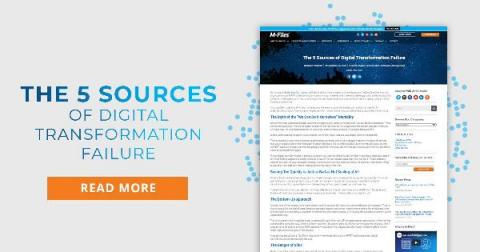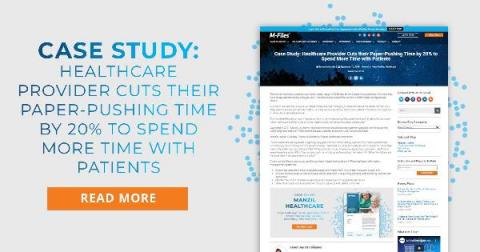Teams | Collaboration | Customer Service | Project Management
September 2020
ARC DS - The complete solution for managing LIBOR reform
The 5 Sources of Digital Transformation Failure
At its core, a digital transformation is all about taking the business you have today and helping it evolve into the organization you WANT to be running tomorrow through a newer and more innovative approach to technology. It’s a way to modernize your infrastructure, improve user experience, and create a bold new company culture — all at the exact same time. It is possible to get this all wrong, however, and the results could be disastrous if you’re not careful.
Why Metadata is as Important as the Data Itself
The sheer volume of information being created on a daily basis by the average business is staggering. In fact, it’s been estimated that more data has been created in the last two years alone than in the entirety of human history leading up to that point.
How to Get Your Executives' Blessing for Your Information Management Project
If you had to make a list of some of the major reasons why an information management project might fail — particularly those that are a part of full scale digital transformations — a lack of executive buy-in would undoubtedly be right at the top.
Case Study: Healthcare Provider Cuts their Paper-Pushing Time by 20% to Spend More Time with Patients
The world’s healthcare workers have taken center stage in 2020, due to the Coronavirus pandemic. The work they do to keep patients healthy is tough work — hallmarked by long shifts and lots of information to digest and record. Anyone in the healthcare space will attest to the fact that managing information sits at the center of their work. They need to access patient information, process insurance claims, record new patient information, among tons of other document-related work.
How to be a Successful Consulting Firm Professional in a Project-Based Business
By far, the most successful consulting companies are doing more than just operating at high efficiency. They’re actually well-oiled machines, working via a thoughtfully designed infrastructure that allows them to deliver on projects AND engagements in a way that other organizations simply cannot match. Therefore, if you truly want to be a successful consulting firm professional in a project-based business, there are a number of important things that you’ll definitely need to keep in mind.









